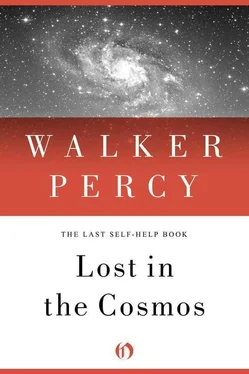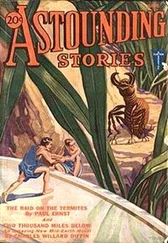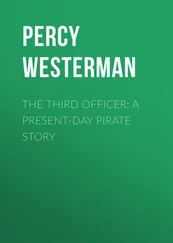Different social combinations had proved disastrous in simulated environments. Two couples or a triangle, one man and two women, or one woman and two men, failed to tolerate a year’s confinement. A single couple, married or not, either fell to murderous quarreling or became so bored with each other that performance fell off. In the case of two couples, it generally happened that one couple fell out and the spouse of one sex took up with the spouse of the opposite sex in the second couple. But it did not generally happen that the leftover pair bonded. There seldom occurred a symmetrical swap. Triangles were always disrupted by destructive pair-bonding. Somebody got left out and either sulked or became violent.
One-man-three-women teams seemed to get along best. In a post-Christian and post-feminist era, it appeared that women generally accept a polygamous relationship, given a reasonable respect for their persons and professional skills, while men were at the least less bored and at the most quite pleased. Women, it seemed, were different from men after all, not worse or better, but different. In the event of pair-bonding between man and woman, the two surplus women seemed content with a relationship, not necessarily homosexual, with each other. The sole man was enjoined, however, to treat all three women with loving and impartial care insofar as he was able. The men in the sealed-environment experiments readily agreed and by and large succeeded.
The captain was a native of Rye, New York, of Dutch descent, and named after a Roman emperor: Marcus Aurelius Schuyler. Thirty-two years old, once a history major at Harvard, he changed course, graduated from the Air Force Academy, and went to M.I.T. for astronomy. A somewhat wayward, wintry, and sardonic man, as wintry as his namesake — he was the sort who could sit in Robinson Hall listening to a lecture on the Battle of Verdun, gaze out the window at the tender green of the spring trees, suddenly reach a decision, close his book, and walk away forever, head for Colorado to fly. His consciousness was reflected and folded in upon itself. Though he might appear as stolid and as steady as one of the old astronauts or a commercial airline pilot — even a little dumb — in fact he was very much conscious of doing just that: playing the unflappable captain. It was his complex way to make the untoward odd decision and to take pleasure both in savoring the very oddness of it and in sticking to it. For example, after the launch of the shuttle to the orbital platform from which he would depart in the starship Copernicus 4, the shuttle crossed the Northeast coastline some hundred miles up and rising. Looking down through the clouds, he could just make out Long Island nuzzling into the continent like a great whale. There, just off its nose and in a sheltered cove, his thirty-foot ketch Andrea, he knew, was bobbing gently at her mooring. His pleasure came from not looking down again and in not thinking that he would never see it, the boat Andrea, or her, the woman Andrea, again.
Why did he volunteer for the mission? Because it was both the odd and the necessary thing to do and the pleasure came from it being both. Though he took as dark a view of the human condition as the Emperor, like the Emperor he also took his pleasure in acting well even though he knew it probably would not avail and that things would end badly. Like the early twentieth-century psychologist Freud, he believed that there is no end to the mischief and hatred which men harbor deep in themselves and unknown to themselves and no end to their capacity to deceive themselves and that though they loved life, they probably loved death more and in the end thanatos would likely win over eros. He and his fellowmen, he knew, loved themselves and war too well and nothing short of a miracle would save them and he did not believe in miracles. But he volunteered nonetheless, or rather because he didn’t believe. He was like a Christian who had lost his faith in everything but the Fall of man. In another time he might have said that earthlings were like the Gadarene swine, who were possessed by demons and were rushing headlong to destruction.
So why not try for Barnard’s Star’s planet for this very reason, that even if there were an ETI there, he could not imagine what it could tell a human that would help the earth four hundred years from now.
Neither the captain nor his superiors were hopeful about the earth’s prospects. Indeed, he had been given secret orders that in the event of a catastrophe on earth during his voyage, he had permission either to request sanctuary on Barnard’s Star’s planet or to colonize it. Surely, one man and three young women had at least as good a chance of starting a new race as Adam and Eve.
And why was he chosen from the thousands of volunteers? Perhaps because of the very complexity and reflectedness of his character: that he knew how to perform as coolly as the most stolid astronaut, and had also this odd “humanistic” background, a history major who specialized in the old twentieth century. So, with only the vaguest notion that somehow a scientist and pilot with a “humanistic” background might somehow be able to get along with three women for eighteen years — or for the next fifty years — and with an intelligent being on Barnard P1, NASA chose him. His father being Governor of New York didn’t hurt him either.
The crew members were:
Tiffany, a tall blond astrophysicist-psychotherapist, from Cal Tech, age 27. In her vita she listed her hobbies: cross-country skiing, wok cooking, “giving and receiving strokes in a creative stroke field.”
Kimberly, a petite brunette linguist-semioticist from Bloomington, Indiana, age 22, the youngest but also the best and the brightest in her field, who, if anyone could, could decipher the code from the ETI on Barnard P1. She liked, besides semiotics: walking in the autumn woods, reading the Vedas in the original Sanskrit, gazing into firelight with a kindred spirit.
The third crew member was the medical officer, Dr. Jane Smith of Nashville, age 23. The oddity about her was that she had been married, listed no hobbies, and put herself down as a Methodist. Hers was old Tennessee Scotch-Irish stock. “You must be the last Methodist in Tennessee,” said the Captain, thinking to make a pleasantry. Her smile was thin. The rumor was that, competent though she was, and brilliant though her contributions to hypothermic hibernation were, her “religious preference” had not hurt her with NASA. The Christian minority was as loud as it was small, as shrill as it was shrinking. Affirmative action for minorities in the space program had been sustained by the Supreme Court. The last mission to Pluto had been manned by a black and Hispanic crew who had not been heard from. Some bad jokes were told. So the present mission was manned by three women and one WASPP (White Anglo-Saxon Post-Protestant) male. Jane Smith had graduated from Vanderbilt, taken her residency in aerospace medicine, and contributed valuable papers on hypothermic hibernation techniques. Her discovery was that both the tissue damage and the discomfort (excruciating pain, if the truth be known) of the hibernation cycle could be minimized by the injection of an endomorph (already known as the Smith-Bowers endomorph). Indeed, the usual cramps and bends of the thaw were replaced by a mild euphoria, as if one had been awakened from a pleasant dream. (“You look just like Scarlett O’Hara waking up,” said the Captain, a student of old twentieth-century culture, to Kimberly the first time she came out of the deep freeze.)
In a word, the Captain suspected Jane might have exaggerated her Methodism in her application, for had she not also signed the “sexual access” form? — that is, the consent agreement by which she contracted to make herself, “her person,” available for “the biological and social objectives” of the mission, which objectives also included “the emotional needs” of her fellow crew members. (Let it be added quickly that the Captain had to sign the same contract. This was no seraglio.)
Читать дальше












